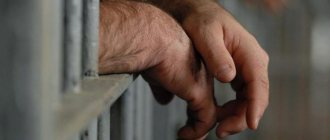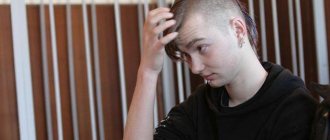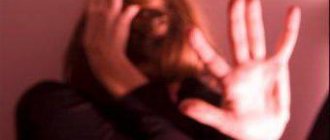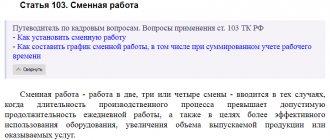New edition of Art. 91 of the Criminal Code of the Russian Federation
1. A warning consists of explaining to a minor the harm caused by his act and the consequences of repeated commission of crimes provided for by this Code.
2. Transfer to supervision consists of assigning to parents or persons replacing them, or to a specialized state body, the responsibility for educational influence on a minor and monitoring his behavior.
3. The obligation to make amends for the harm caused is imposed taking into account the property status of the minor and the availability of appropriate work skills.
4. Restrictions on leisure time and the establishment of special requirements for the behavior of a minor may include a ban on visiting certain places, using certain forms of leisure, including those related to driving a motor vehicle, limiting stay outside the home after a certain time of day, traveling to other areas without the permission of a specialized state organ. A minor may also be required to return to an educational organization or find employment with the help of a specialized government agency. This list is not exhaustive.
Commentary on Article 91 of the Criminal Code of the Russian Federation
1. A warning is a negative assessment of the behavior of the perpetrator, accompanied by a requirement to stop illegal activities and providing for the possibility of real application of a criminal law sanction if the criminal activity continues.
2. The main content of a warning as a PMV is to explain to a minor offender the legal consequences of repeated commission of an act prohibited by the Criminal Code of the Russian Federation, familiarization with the dispositions and sanctions of the relevant articles of the Criminal Code of the Russian Federation. In this case, the person is explained what the social danger of the act he has committed and its specific harmful consequences are.
3. Supervision of juvenile offenders consists of monitoring their behavior and conducting appropriate educational work with them. Minors are supervised by their parents, persons in loco parentis, or a specialized government agency. The duration of the supervision period is established by the court: from one month to two years when a teenager commits a crime of minor gravity, or from six months to three years when committing a crime of medium gravity (Part 3 of Article 90).
4. Imposing the obligation to make amends for the harm caused means compensation for the damage caused by the crime using one’s own means or one’s own labor. This measure is prescribed taking into account the property status of the minor and the availability of appropriate labor skills. A mandatory attribute of the PMV in question is the imposition on the guilty person of the obligation to apologize to the victim, in appropriate cases - publicly.
5. Restrictions on leisure time and the establishment of special requirements for the behavior of a minor are imposed, as a rule, in cases where a criminal offense was committed in leisure conditions.
5.1. Restrictions may apply to driving a car, motorcycle and other mechanical vehicles, staying away from home after a certain time of day (for example, after 20:00), and traveling to other areas. If there is an objective need to travel to another area, a minor with such a restriction must obtain permission from a specialized government agency.
5.2. Special requirements for the behavior of a minor may be expressed in the requirement to resume studies in a general education or vocational educational institution, or get a job.
5.3. The duration of the term of the mentioned measures is determined by the court: from one month to two years when a teenager commits a crime of minor gravity, or from six months to three years when committing a crime of medium gravity (Part 3 of Article 90).
6. A minor may also be subject to requirements not provided for in Part 4 of the commentary. articles with a list (for example, the requirement to behave properly in the family, not to run away from home, etc.), since the latter is not exhaustive.
Judicial practice under Article 90 of the Criminal Code of the Russian Federation
Resolution of the Plenum of the Supreme Court of the Russian Federation dated October 31, 2017 N 42
1. If during the preliminary investigation of a criminal case it is established that there is a basis provided for in part one of Article of the Criminal Code of the Russian Federation for termination of a criminal case or criminal prosecution in relation to a minor suspect or accused, then the investigator with the consent of the head of the investigative body, as well as the investigator with the consent of the prosecutor, makes a decision to terminate the criminal case or criminal prosecution and initiate before the court a petition to apply a compulsory educational measure to the accused minor, provided for in part three of article of the Criminal Code of the Russian Federation, which, together with the criminal case sent by the head of the investigative body or the prosecutor to the court.
Appeal ruling of the Judicial Collegium for Military Personnel Cases of the Supreme Court of the Russian Federation dated November 22, 2018 N 201-APU18-46
Lawyer Zaitsev, in an appeal filed in defense of the convicted Davydov, believes that the court’s conclusions set out in the verdict do not correspond to the actual circumstances of the criminal case, the court violated the norms of the criminal procedural law and incorrectly applied the criminal law. In support, referring to the results of psychological and linguistic examinations, the defense attorney argues that the text posted by Davydov on February 3, 2021 on the Internet does not contain any signs of justifying terrorism, it does not contain any indications of violence, intimidation of the population, illegal actions, or the practice of influencing decision-making by authorities, Davydov’s intention to justify terrorism has not been established. There is no public danger from this text, as evidenced by its availability in the public domain for a long time, including after the initiation of a criminal case. The fact that the inspection of objects (documents) was carried out on December 29, 2021 is doubtful; the protocol of this investigative action may have been falsified. The reference in the protocol to changing the password for the page "..." is refuted by information received from VKontakte LLC. The inspection of objects (documents) was carried out with the participation of Davydov as a witness in the absence of a defense lawyer; the right to use the services of a lawyer was not explained to Davydov, which indicates the inadmissibility of the protocol of inspection of objects (documents) dated December 29, 2021 as evidence. The punishment imposed on Davydov is unfair due to excessive severity. The court did not take into account the small gravity of the crime, Davydov’s minor age, his emotional state during the commission of the crime, exemplary behavior, and awareness of his mistakes before the initiation of a criminal case. The court had the opportunity to apply the provisions of Art. Criminal Code of the Russian Federation or Art. Art. , 76.2 of the Criminal Code of the Russian Federation, which has not been done. The defense lawyer asks to cancel the verdict regarding Davydov’s conviction under Part 1 of Art. 205.2 of the Criminal Code of the Russian Federation (as amended by Federal Law No. 420-FZ of December 7, 2011) and acquit the convicted person.
Appeal ruling of the Judicial Collegium for Criminal Cases of the Supreme Court of the Russian Federation dated January 31, 2018 N 11-APU18-1
The punishment imposed on the convicted person cannot be considered excessively harsh; it is fair, and there are no grounds for mitigating it or applying the provisions of Part 6 of Art. , art. Art. , Criminal Code of the Russian Federation, and Khasanov A.A. also art. Art. , the Criminal Code of the Russian Federation is not seen.
Resolution of the Plenum of the Supreme Court of the Russian Federation dated October 28, 2021 N 32
"31. If the court, in a criminal case pending against a minor accused of committing a crime of minor or medium gravity, comes to the conclusion that there are no grounds for releasing the minor from criminal liability in accordance with the provisions of the articles of the Criminal Code of the Russian Federation, but at the same time correction can be achieved by applying compulsory educational measures provided for in Part 2 of Article of the Criminal Code of the Russian Federation, then the court issues a resolution (ruling) to terminate the criminal case or criminal prosecution and apply compulsory educational measures to the minor in accordance with the article of the Criminal Code of the Russian Federation.
Another comment on Art. 91 of the Criminal Code of the Russian Federation
1. A warning consists of explaining to a minor the harm caused by his act and the consequences of repeated commission of crimes.
2. Transfer to the supervision of parents or persons replacing them, or a specialized state body consists of assigning to these entities the responsibility for educational influence on the minor and monitoring his behavior. This measure is applied if the parents or persons replacing them have authority in the eyes of the teenager and the opportunity to have a significant positive educational influence on him.
3. The obligation to make amends for the harm caused applies only to a minor who has his own income or scholarship or labor skills that allow him to independently carry out repair or construction work.
4. Restrictions on leisure time and the establishment of special requirements for the behavior of a minor may include a ban on visiting certain places, using certain forms of leisure, limiting time away from home after a certain time of day, etc. The list of restrictions is not exhaustive.
Grounds and conditions for applying educational measures
The basis for exemption from criminal liability in connection with the use of compulsory educational measures is the commission of a crime of minor or moderate gravity by a minor (regardless of whether the crime was committed for the first time or not).
The condition for exemption from criminal liability is the court’s conclusion that it is possible to correct a minor without bringing him to criminal liability through the use of compulsory educational measures (without applying criminal punishment).
Grounds for canceling educational measures
The basis for canceling a measure of educational influence, in accordance with Part 4 of Article 90 of the Criminal Code of the Russian Federation, is the systematic failure of a minor to comply with the measure of influence assigned to him, with the exception of a warning.
Systematic failure by a minor to comply with a compulsory measure of educational influence should be understood as repeated (more than two times) violations during the period of application of a compulsory measure of educational influence appointed by the court (for example, restricting leisure time, establishing special requirements for his behavior), which were registered in the prescribed manner by a specialized body, exercising control over the behavior of a teenager (clause 32 of the Resolution of the Plenum of the Supreme Court of the Russian Federation dated 01.02.2011 N 1).
If a minor is simultaneously assigned several compulsory measures of educational influence, and within a certain period he has committed single violations (no more than two times for each of them), such violations cannot be recognized as systematic, giving grounds for the court to apply the provisions of Part 4 of Article 90 of the Criminal Code of the Russian Federation on the cancellation of the compulsory measure.
Cancellation of a compulsory educational measure and the resumption of proceedings in the case are permissible if the statute of limitations for bringing a minor to criminal responsibility has not expired (Article 94 of the Criminal Code of the Russian Federation).
A specialized government body, which, in accordance with Art. 90 of the Criminal Code of the Russian Federation, a minor can be placed under supervision, and the body that has the right to apply to the court with a proposal to cancel a compulsory educational measure in cases of systematic non-compliance by a minor is the commission on affairs of minors and the protection of their rights.
List of educational measures
Compulsory educational measures are measures of state coercion that are not punishment and are applied to minors who have committed a crime in order to correct them.
Part 2 of Article 90 of the Criminal Code of the Russian Federation provides for the possibility of assigning four types of compulsory educational measures, these include:
- warning;
- transfer under the supervision of parents or persons replacing them, or a specialized government body;
- imposing an obligation to make amends for the harm caused;
- restricting leisure time and establishing special requirements for the behavior of a minor.
The list of compulsory educational measures is exhaustive. The issue of applying educational measures to a minor is decided only by the court.
In accordance with Art. 90 of the Criminal Code of the Russian Federation, a minor may simultaneously be assigned several compulsory measures of educational influence, for example, warning and transfer to the supervision of parents, the imposition of an obligation to make amends for the harm caused and restriction of leisure. These measures are not divided into basic and additional and can be prescribed in any combination.
When transferring a minor to the supervision of parents or persons replacing them, the court must make sure that these persons have a positive influence on the teenager, correctly assess what he has done, and can ensure appropriate behavior and daily control of the minor. To do this, it is necessary to request characterizing material, check the living conditions of the parents or persons replacing them, the possibility of financial support for the teenager, etc. Despite the fact that the law does not require the consent of parents or persons replacing them to transfer a minor to their supervision, such consent must be obtained by the court.
If the court makes a decision to terminate a criminal case and apply to a minor, as a compulsory educational measure, transfer to the supervision of parents or persons replacing them (relatives, guardians), or a specialized government body, or restriction of leisure and establishment of special requirements for behavior, the resolution must the period during which the chosen measure is applied must be indicated
The period for applying compulsory measures of educational influence, provided for in clauses “b” and “d”, part 2 of Article 90 of the Criminal Code of the Russian Federation, is established to last from one month to two years when committing a crime of minor gravity and from six months to three years - when committing crimes of medium gravity.






